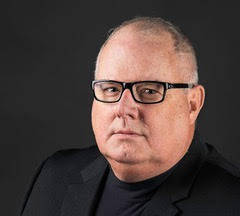
A Royal Air Force officer yelled, “What have you bloody Americans done to the English language?” It was the late ’80s and I was working with my allied counterparts at SHAPE, Belgium, three stories below ground level inside a blast-hardened bunker. The TV was constantly tuned to CNN because of our real-world mission. A commentator had butchered a word and my British counterpart was expressing his frustration.
In my best English accent I replied, “I say, old chap, what has gotten your knickers in a twist?” As other allied and U.S. officers looked up from their work stations at me because of my reply to a rhetorical question, I recovered with a Southern-accented “Bless your heart.”
What have we done with the English language is an excellent question.
The latest tactic of the divide-and-conquer crowd is to unjustly accuse people of being a “nazi” or a “racist.”
Merriam-Webster defines racism as “poor treatment of or violence against people because of their race.” Likewise, nazi (non-World War II era) is defined as “an evil person who wants to use power to control and harm other people especially because of their race, religion, etc.”
The key words in both definitions are violence and harm, physical acts against nonwhites.
Members of the Ku Klux Klan, American Nazi party and other white supremacist groups are racists. Their words and actions identify them as such. These despicable persons are at the far end of any continuum and are fewer in number than the 63 million some folks embrace.
A watchdog group estimates there are 5,000-8,000 Nazis and about 8,000-10,000 KKK members in America. These numbers are unacceptable. However, in a country such as ours, whatever benefit(s) or freedom(s) we enjoy, there will always be a fringe element(s) to exploit and abuse that freedom or benefit, whether it be First Amendment rights or food stamp benefits.
What is worse than being a racist or a nazi? Many things, such as calling a nonracist a racist, usually from the safety of someone else’s basement using an anonymous screen name. Desecrating U.S. war veterans’ graves is just as bad as being a racist.
Another example is so called “anti-fascist” groups who, in large numbers wearing masks and headgear, hurl urine and feces at police officers. These same people attack anyone they claim is a nazi or racist, usually in a five-on-one encounter. These folks claim attacking a nazi is justified under self-defense. But where do they get the authority to identify someone as a nazi?
“How many legs does a dog have if you call his tail a leg? Four. Saying that a tail is a leg doesn’t make it a leg.” (Abraham Lincoln.) Likewise, just because you call someone a nazi or a racist doesn’t make it so.
What have we Americans done to the English language? A great deal since 1776, old chap. Most people know that being vindictive is not the same as being vindicated.
We may have diluted, overused and butchered some words, but our collective hearts are pure.
The good news is that the majority of Americans are not racist. The public-spirited response to Hurricane Harvey demonstrates the shared humanity and nonracism of the average American. There were no racial or ethnic groups among the responders to the largest natural catastrophe in U.S. history; there were only members of the human race.
Dan Jennings can be reached at bcpd267@cox.net, or by visiting his website at www.danielmjennings.com.